Oscar Pistorius trial: Key players
- Published
Athlete Oscar Pistorius is being tried for the murder of his girlfriend Reeva Steenkamp on Valentine's Day last year.
State prosecutors allege the killing was premeditated, but he claims he mistook her for an intruder. Here are profiles of the key people involved.

Victim: Reeva Steenkamp

A model and TV reality star, Reeva Steenkamp had been dating Oscar Pistorius for three months before she was shot dead at the age of 29.
She also hoped to qualify as a lawyer. After school she studied law at the University of Port Elizabeth, graduating in 2005 with a bachelor of law, and had worked as a paralegal. She applied to the bar in late 2011, aiming to become a legal advocate by the age of 30.
Born in Cape Town, she grew up in Port Elizabeth in the Eastern Cape. Her friends say she was passionate about promoting gender equality and stopping abuse against women - and had fronted an anti-bullying campaign in 2012.
Although she was known on the local social scene, most of South Africa only came to know her after her tragic death.

Accused: Oscar Pistorius
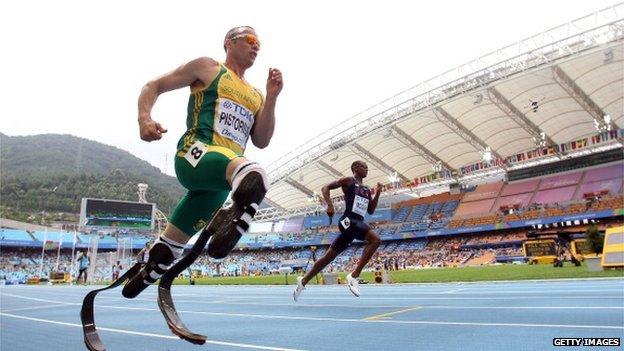
The 27-year-old Paralympian has more than 20 gold medals to his name. Oscar Pistorius made history in 2012, when he became the first amputee to compete alongside able-bodied athletes in the London Olympics.
He was born in Sandton, a Johannesburg suburb, without the fibulas in both of his legs. When he was 11 months old, he had surgery to amputate both legs below the knee. By the age of two, he was walking on prosthetic legs. He competed in a variety of sports in school, and was just 17 when he won gold at the 2004 Paralympic Games in Athens.
He went on to be widely regarded as one of South Africa's most successful sportsmen, appearing in global advertising campaigns and earning millions of pounds in lucrative sponsorship deals.

Judge: Thokozile Masipa
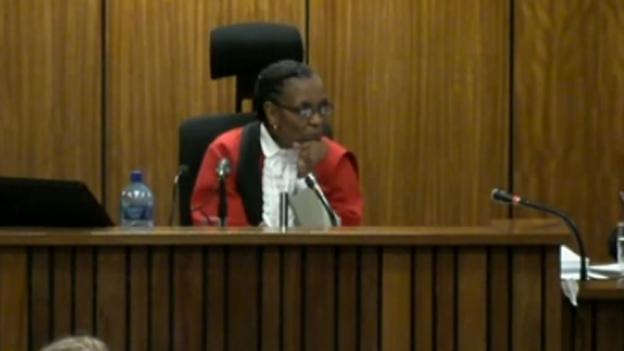
Once a social worker and a journalist who covered crime, Thokozile Masipa qualified as a lawyer in 1990 and was appointed South Africa's second black female judge eight years later.
Described as likeable and publicity-shy, she has landed the most high-profile court case in post-apartheid South Africa, with partially live radio and television broadcasts for the first time. Although the justice department has said the allocation of the case to her was routine, gender activists have welcomed it in a country with high levels of violence against women.
In September, Ms Masipa sentenced serial rapist Shepherd Moyo to 252 years in prison. "The worst in my view is that he attacked and raped the victims in the sanctity of their own homes where they thought they were safe," she said in her judgement.
She also convicted and sentenced police inspector Freddy Mashamba for shooting dead his wife in 2009, in a case similar to that of Mr Pistorius, according to South Africa's The New Age newspaper. "You deserve to go to jail for life, because you are not a protector, you are a killer," the paper quotes her as saying.

Prosecutor: Gerrie Nel
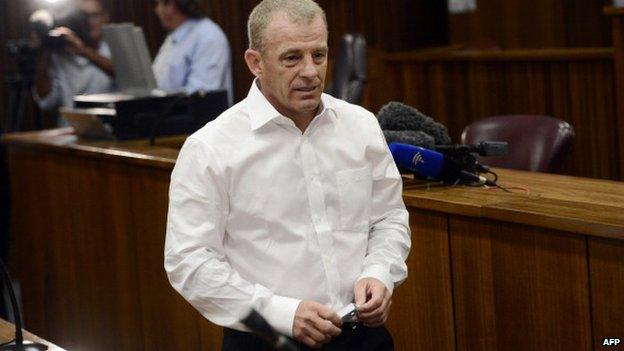
Gerrie Nel is known for his no-nonsense attitude inside the courtroom and is one of South Africa's most respected legal minds.
With more than 30 years' experience he has a string of successful prosecutions under his belt and is no stranger to high-profile cases. He prosecuted former police boss and Interpol's ex-head Jackie Selebi on corruption charges, once calling him an "arrogant liar" during cross examination.
Those who know him praise his meticulous attention to detail and his "fearlessness". He was junior prosecutor in the murder case of anti-apartheid activist Chris Hani in 1993.
He was also the founding head in 1999 of the Gauteng province division of South Africa's elite police and prosecution unit the Hawks, then known as the Scorpions.

Defence: Barry Roux
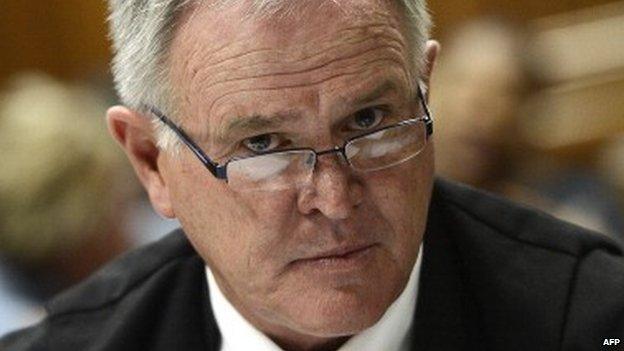
With 31 years' experience, senior counsel Barry Roux has taken on some of the most controversial cases in South Africa.
One involved the long-running tax evasion trial of Dave King, a Glasgow-born businessman and Rangers football club director, who in 2002 was accused of defrauding the South African tax authorities of hundreds of millions of dollars - it ended with him paying a far smaller amount and avoiding prison.
In the 1990s, Mr Roux defended apartheid-era police general Lothar Neethling, who sued a newspaper over claims that he supplied poison used against anti-apartheid activists.
Outside court, a few days after taking on Mr Pistorius's case, when asked about its challenges, he joked: "There's a call I received last week. Had I known I would not have taken it," AFP news agency reports. He secured bail for the Olympic athlete after then-police investigator, Hilton Botha, wilted under his cross-examination, weakening the state's case.

Lead detective: Vineshkumar Moonoo
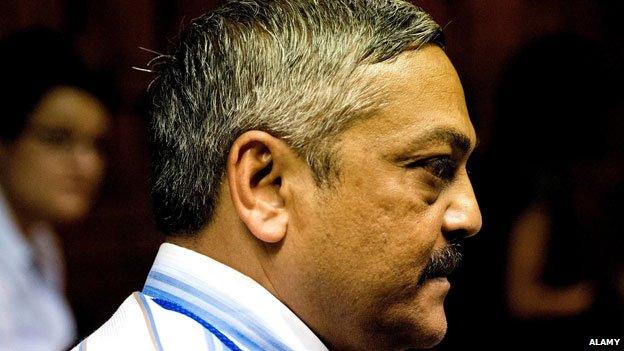
Lt Gen Vineshkumar Moonoo is South Africa's top detective. He became the divisional commissioner of detective services in South Africa in 2011.
With almost 30 years' experience, he took over the investigation of the Pistorius case after the inept performance of Det Botha during the bail hearing.
He became a police trainee at Wentworth Police College in 1981 in KwaZulu-Natal province - and three years later qualified as a detective.
From 1984 he was stationed in Kliptown, marking the start of a long period working in Soweto, where he eventually became area head of detective services. In 2002, he was appointed to head a division of the organised crime branch. He is a widely respected figure in the police force.